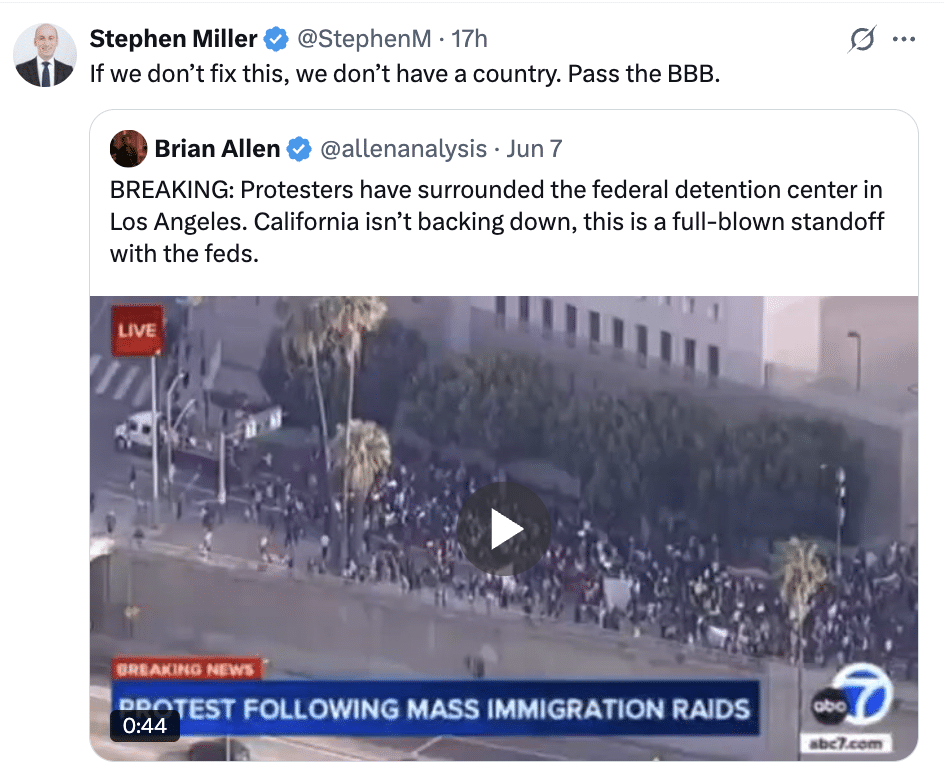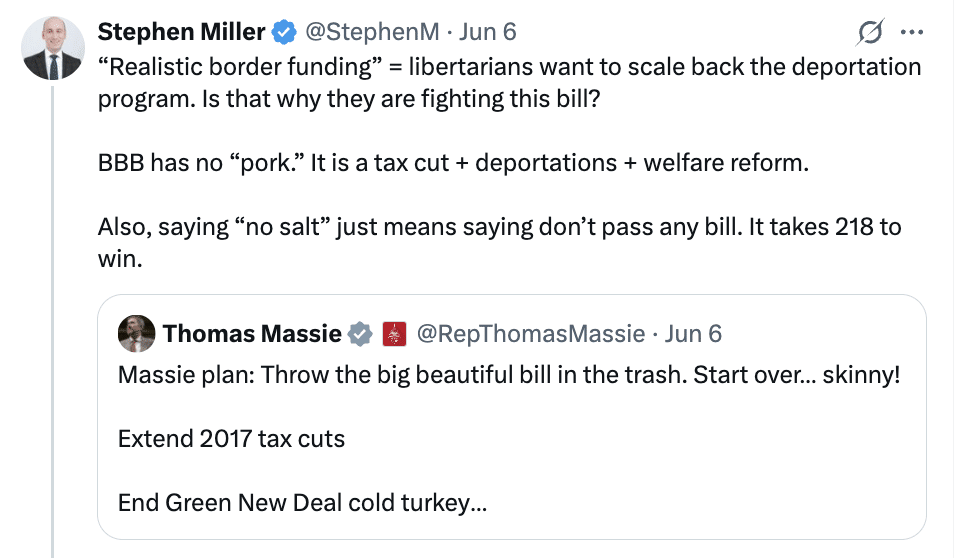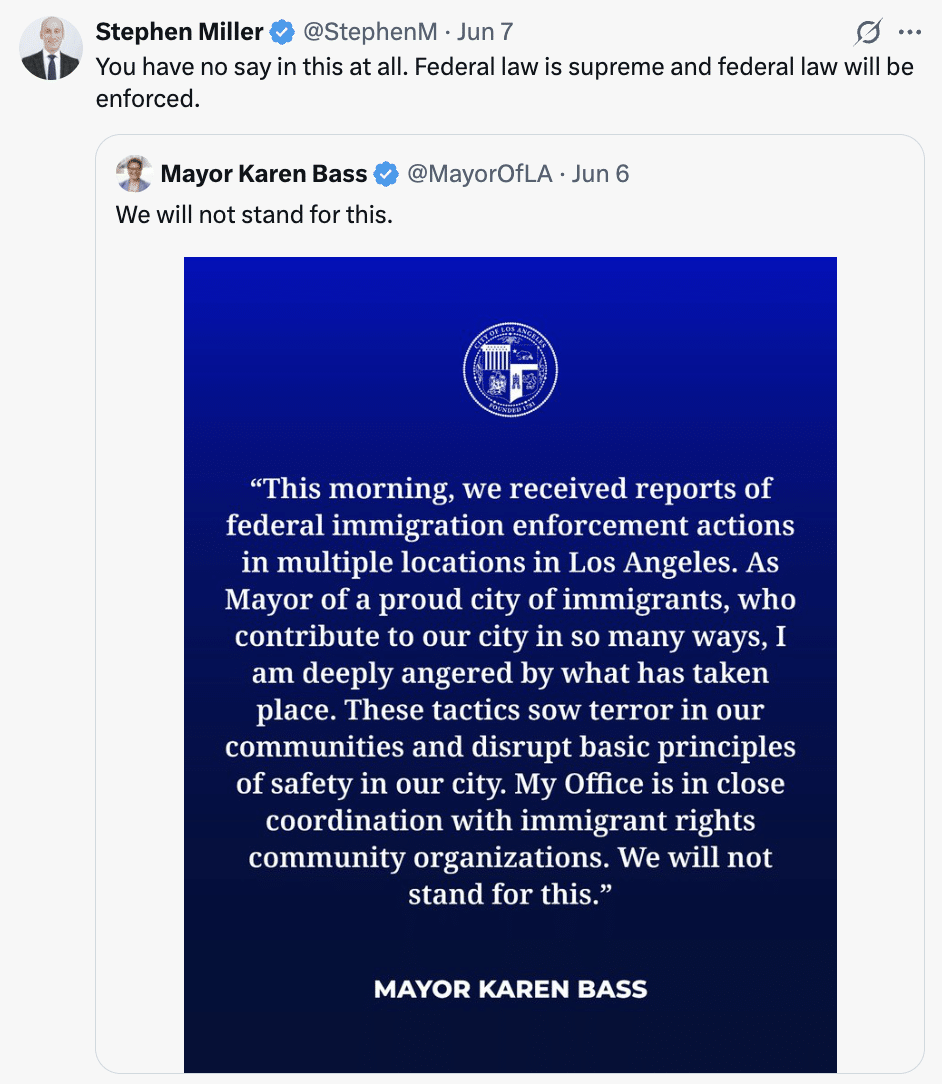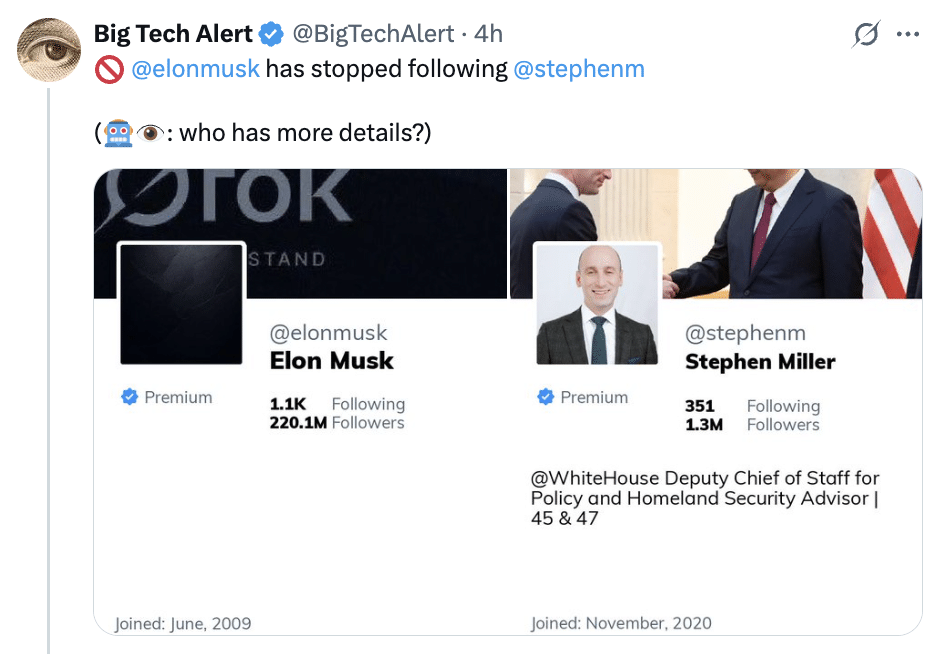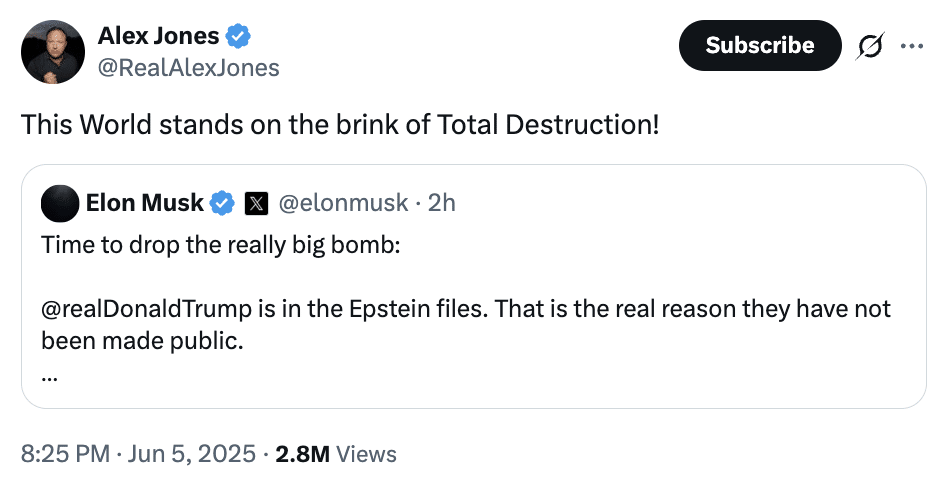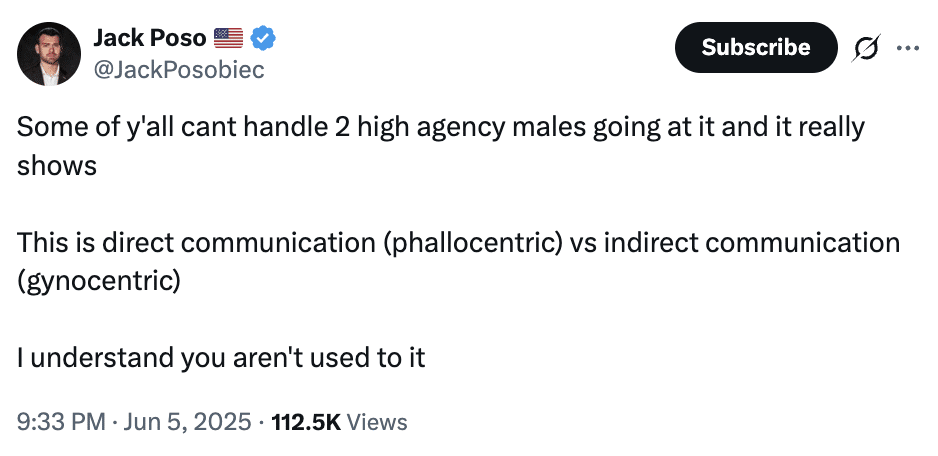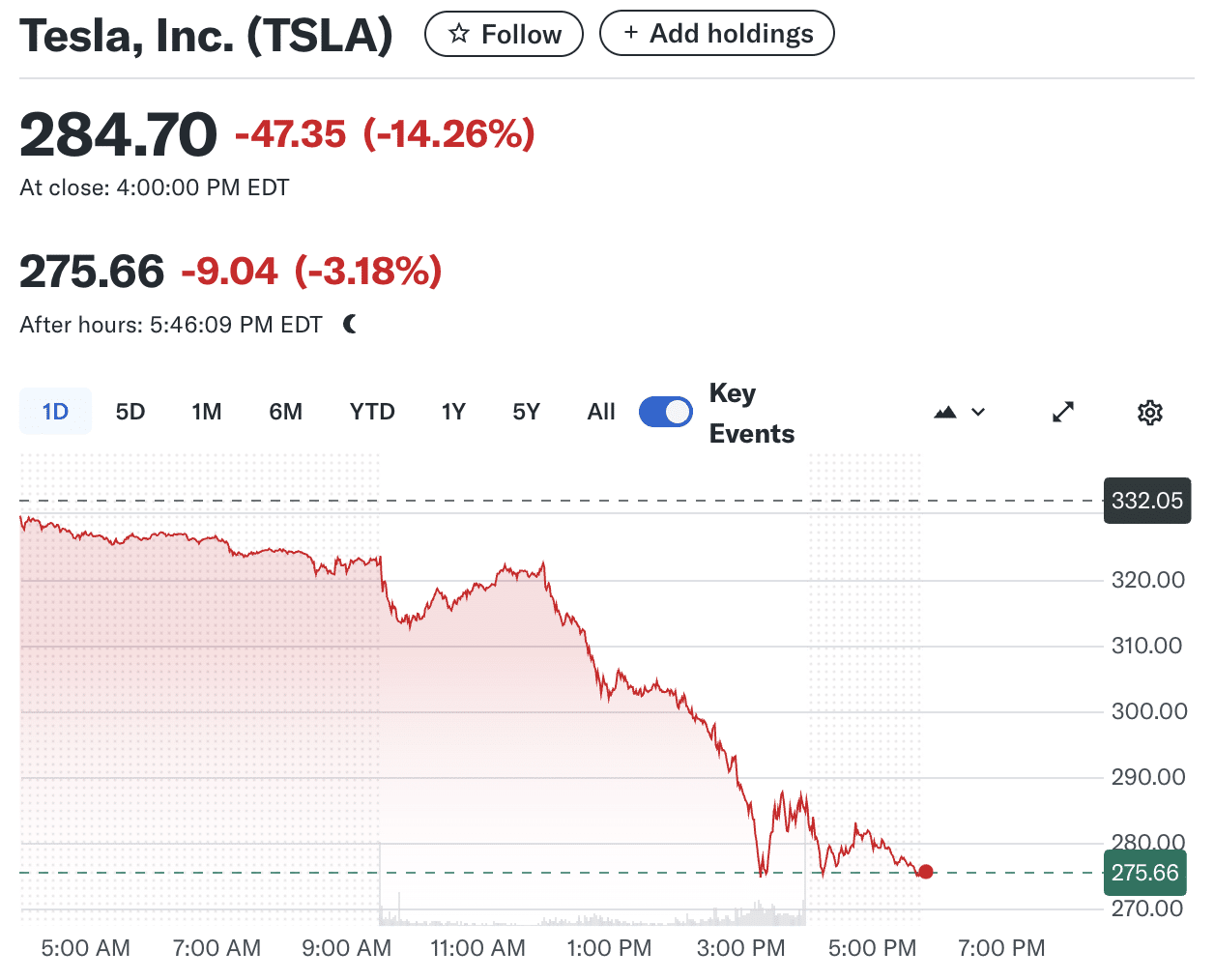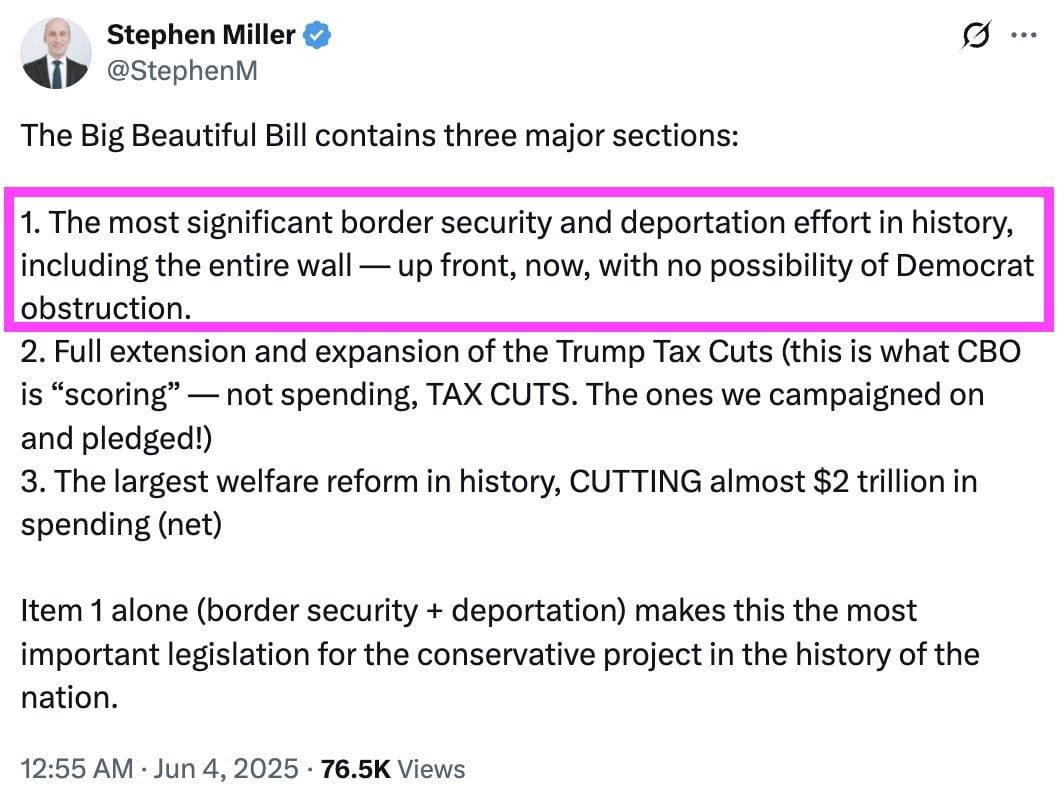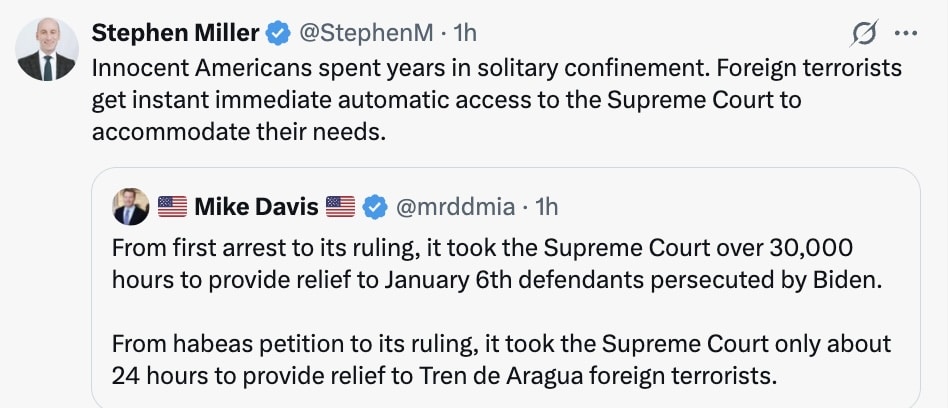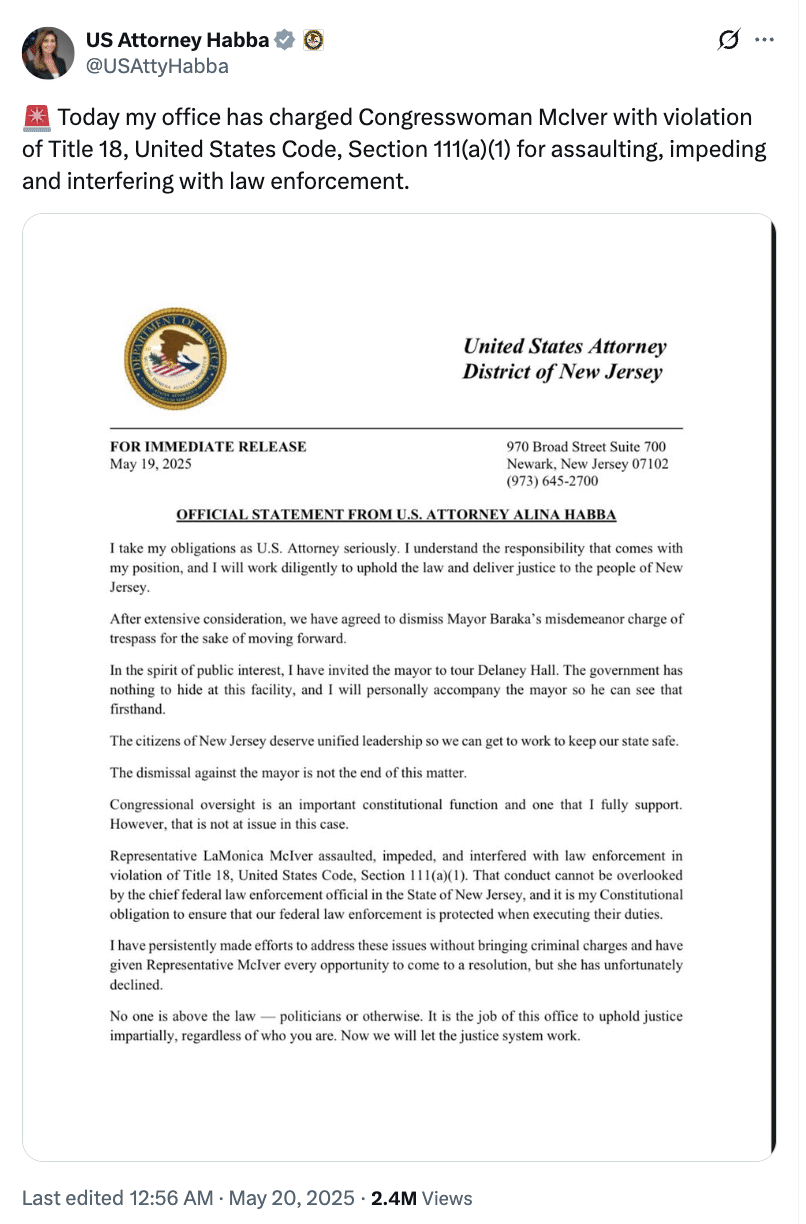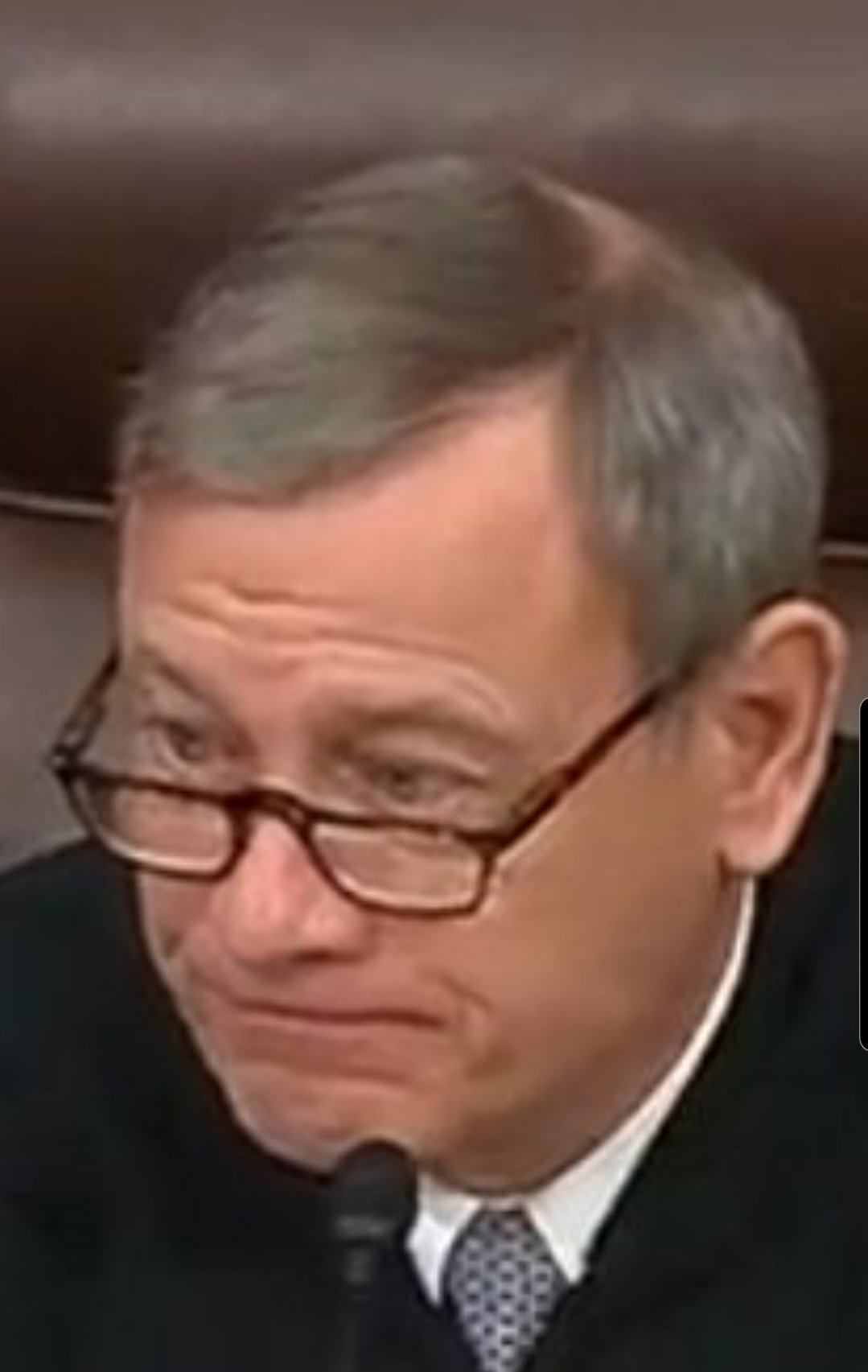Trump’s Blank Page
Great fun has been had, not least by me, with Trump’s joint press conference with Keir Starmer yesterday.
It started with Trump boasting that he and “the great Prime Minister of the UK” had signed “a document.”
He opened a folder to show a piece of paper with his Sharpie signature. But he fumbled it. Several other papers fell out of the folder. Starmer bent down to shuffle up the papers together, looking like Trump’s attendant. Trump blamed the wind. Starmer joked that it was a “very important document.” Starmer laughed nervously as the two tried to reassemble the prop. The British Prime Minister bent his head, perhaps understanding the optics of what just happened.
And so we have our trade agreement with the European Union. [Starmer’s awkward smile melted.] And it’s a fair deal for both. Gonna produce a lot of jobs, a lot of income. And we have a lot of, many many other ones coming.
“But you see the level of enthusiasm is very good,” the President claimed in a deadpan.
The video went viral because of the old man’s gaffe. The EU is not the UK. The UK is not the EU. Trump makes intentional taunts (like continuing to call various Canadian leaders “Governor”). But this looked like a real mistake, perhaps elicited by the fluttering paper mishap.
The President of the United States can’t keep the UK and the trade union it abandoned, as part of the same political wave that elected Donald the first time, straight.
The presser — staged before Trump jumped on a plane to either escape the G7 or rush to kibbitz the assassination of Ayatollah Khameni, amid Chinese warnings about escalation — ended with a question about the significance of the purported deal with the UK, whether the UK is protected from tariffs.
The UK is very well protected. You know why? Because I like ’em. That’s why.
Then Trump babbled about what a great job Starmer has done.
He wandered off, promising — as his Administration has done for two months — that he had more deals in the works.
A lot of them. A lot of them.
It was all great theater — or would have been, had the President not fumbled his props and his lines. But as Justin Wolfers noted, that document was a prop. The paper was blank, save that Sharpie signature. So, it appears, were all the other papers. [Update: No, the papers were not blank, just overexposed.]
To be sure, in an Executive Order released by the White House, Trump did, in fact, implement the deal. But that implementation was, in every way, an exercise of Trump’s fragile unilateral authority. At least by appearance, Starmer got no piece of paper guaranteeing the deal. The EO actually defers the adoption of the favorable import rates for British steel and aluminum. And Trump based his authority to implement the deal on the same IEEPA powers that the Court of International Trade has thrown out (currently on appeal to the Federal Circuit Court of Appeals).
Blank page. Flubbed lines. Fumbled prop. Repeated assurances of deals that never come. All Starmer has to hold onto is Trump’s proclamation that the UK is “very well protected … because I like ’em,” a personalist assurance perhaps valid only so long as Starmer will pick up Trump’s papers for him.
The entire press conference was a testament to the way in which the aging reality star has become little but.
It came amid one of the biggest flip flops in an Administration defined by such.
On Wednesday — as described by a NYT ticktock of the flip flop — Ag Secretary Brooke Rollins warned Trump, again, that Stephen Miller’s deportation gulag was posing great risk to (Trump-supporting) farmers. On Thursday, Trump posted the incoherent rant that conceded that, “Our great Farmers and people in the Hotel and Leisure business,” were finding it “almost impossible to replace” the migrants who had long done the job, even while suggesting, “the Criminals allowed into our Country by the VERY Stupid Biden Open Borders Policy” — by which Trump means, other migrants — “are applying for those jobs.” We have to protect job security for migrants from other migrants, the rant affirmed.
“[T]op White House officials were caught off guard,” NYT reports, but doesn’t mention Stephen Miller until the next sentence. “Many of Mr. Trump’s top aides, particularly Stephen Miller, his deputy chief of staff, have urged a hard-line approach.”
Brooke Rollins managed to bypass Miller (as Scott Bessent bypassed Peter Navarro and Elon Musk at various times, to get his way). And overnight the policy changed. No more arrests of “noncriminal collaterals” in work site enforcement operations.
The guidance was sent on Thursday in an email by a senior ICE official, Tatum King, to regional leaders of the ICE department that generally carries out criminal investigations, including work site operations, known as Homeland Security Investigations.
“Effective today, please hold on all work site enforcement investigations/operations on agriculture (including aquaculture and meat packing plants), restaurants and operating hotels,” he wrote in the message.
The email explained that investigations involving “human trafficking, money laundering, drug smuggling into these industries are OK.” But it said — crucially — that agents were not to make arrests of “noncriminal collaterals,” a reference to people who are undocumented but who are not known to have committed any crime.
It didn’t last.
A botched birthday parade and presumably some quality time with his consigliere later, Trump was promising invasions of Chicago and New York, specifically because (Trump continues to make lawsuits easier than they otherwise could be),
These, and other such Cities, are the core of the Democrat Power Center, where they use Illegal Aliens to expand their Voter Base, cheat in Elections, and grow the Welfare State,
Miller’s utilitarian gulag was back on!
NYT got the scoop confirming the first change in policy; WaPo got the scoop reporting the flip flop.
Officials from Immigration and Customs Enforcement, including its Homeland Security Investigations division, told agency leaders in a call Monday that agents must continue conducting immigration raids at agricultural businesses, hotels and restaurants, according to two people familiar with the call. The new instructions were shared in an 11 a.m. call to representatives from 30 field offices across the country.
ICE and HSI field office supervisors began learning about a likely reversal of the exemption policy Sunday after hearing from DHS leadership that the White House did not support it, according to one person with knowledge of the reversal.
Again, WaPo uses a kind of euphemism to convey that when it says, “the White House did not support it,” it means, “Stephen Miller did not.”
Miller, an architect of much of Trump’s aggressive immigration policy, had privately opposed carving out exceptions for certain industries that rely heavily on workers without legal status, according to two people with knowledge of his advocacy in recent days against the measure.
Miller is not just the architect of Trump’s gulag. He’s the guy with a stack of pieces of paper, sometimes blank pages, for Trump to sign, on all manner of policy topic. He is almost certainly the guy who made a number of decisions — like invoking the Alien Enemies Act that Miller had been craving to use for years — that Trump publicly disavowed. He appears to have provided the authority — his interpretation of Trump’s fee fees — for an ill-conceived Houthi attack that accomplished nothing and wasted resources.
Increasingly, it appears that Miller issues the decisions (or countermands the others), all while handing Trump pieces of paper and a Sharpie to make him feel — and, if he doesn’t fumble his papers or his lines — powerful, and give Miller’s assumption of presidential powers the patina of legitimacy. Trump, the reality TV star, is just there for the press conferences.
The most fervid claims of a Joe Biden autopen scandal pale in comparison.
Trump’s deportation flip flop comes as Wired reported rising numbers of SEC filings describing the business risk from the deportations and WSJ described how Miller’s raids are disrupting businesses; NBC took a closer look at the chaos caused in Omaha during John Ewing’s first week as Mayor when ICE targeted a meat packing plant. Everyone knows this policy is damaging the US but in the face of Miller’s omnipresence and pushback from rabid supporters, Trump is helpless to even selectively protect his buddies.
And it has been simple for foreign leaders to exploit Trump’s increasing feebleness. Before he rushed away from the G-7 yesterday, he served as Vladimir Putin’s propagandist, whining that Russia had been expelled and misrepresenting the reason why. Both before and after that, Trump kept posting away futilely on Truth Social, attempting to look like he had some control — or even influence — over what Bibi Nethanyahu has in store for Iran.
“I gave Iran chance after chance to make a deal,” Trump boasted on Friday, before taking credit for Israel’s strike. “Certain Iranian hardliner’s spoke bravely, but they didn’t know what was about to happen. They are all DEAD now, and it will only get worse!” He went on to claim that Israel was enforcing Trump’s own 60-day deadline (even as the attack preempted Steve Witkoff’s meeting with a now-dead negotiator). “The U.S. had nothing to do with the attack on Iran, tonight,” Trump lied in an attempt to warn Iran off retaliating against the US. Trump would negotiate a deal, he whimpered. Iran should have signed the deal (it did — and then Trump reversed it) Trump repeated as he — insanely — called for a city of 10 million to evacuate. Shut up Tucker Carlson, about my reneging on the promise to avoid World War III! Now he’s redefining America First to encompass whatever it is that Israel has in store. “I have not reached out to Iran for “Peace Talks” in any way, shape, or form. This is just more HIGHLY FABRICATED, FAKE NEWS!” tried to disclaim every pursuing a deal, even while his public statements endorse a give-upping from Iran (which may entail the assassination of Ayatollah Khamenei) not on the table last week. His most recent post shares a text from Christian Nationalist Mike Huckabee, invoking Harry Truman’s decision to nuke Japan, while promising, “I believe you will hear from heaven and that voice is far more important than mine or ANYONE else’s.”
As Trump disavows what Tulsi Gabbard (fresh off releasing a weird propaganda video warning of nuclear annihilation) tells him, he seems to have been persuaded to endorse whatever it is Bibi has planned.
The rest is all an attempt to retcon some appearance of control over what Bibi is doing, an attempt to do so even as his MAGAt base fractures over his participation in this escalating war.
Trump is not alone in being manhandled by Bibi. Joe Biden was equally easy to manipulate — he just made affirmative efforts, with little success, to rein in Bibi’s ambitions. Trump appears to lack even that ability.
And the rest is blank papers waved around to give the illusion of power.



